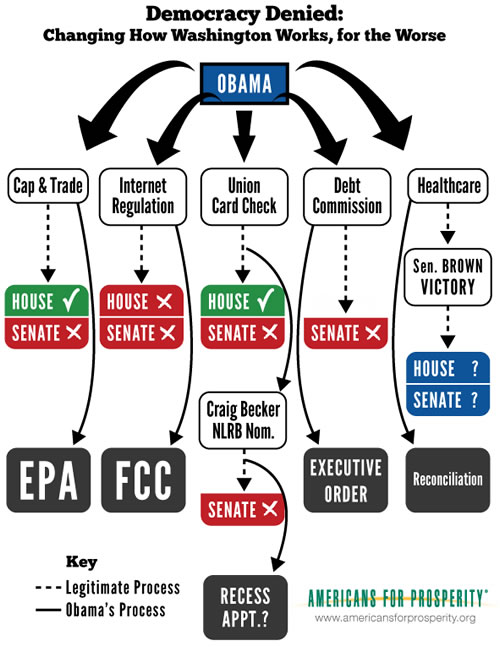United States News
See other United States News Articles
Title: That asshole Kenyan White House Resident brings back death panels
Source:
[None]
URL Source: http://theblogprof.blogspot.com/201 ... ma-returns-to-end-of-life.html
Published: Dec 27, 2010
Author: blogprof.blogspot.
Post Date: 2010-12-27 08:58:23 by no gnu taxes
Keywords: None
Views: 2886
Comments: 12
It's not enough that death panels remained in ObamaCare and are now reaping havoc: ObamaCare Death Panels begin early: FDA pulls Avastin approval for breast cancer OVER COST CONCERNS. Obama wants a provision that was stripped out of ObamaCare to "end of life counseling" in which doctors are incentivized to get patients to basically kill themselves via medical neglect. Essentially Obama's "take a pain pill and die" strategy. To save costs of course. As you might suspect, Obama can;t get this legislation through Congress so he is instead going to push it through regulation just like so many other priorities: From the New York Times via memeorandum: Obama Returns to End-of-Life Plan That Caused Stir Under the new policy, outlined in a Medicare regulation, the government will pay doctors who advise patients on options for end-of-life care, which may include advance directives to forgo aggressive life-sustaining treatment. Congressional supporters of the new policy, though pleased, have kept quiet. They fear provoking another furor like the one in 2009 when Republicans seized on the idea of end-of-life counseling to argue that the Democrats’ bill would allow the government to cut off care for the critically ill. The final version of the health care legislation, signed into law by President Obama in March, authorized Medicare coverage of yearly physical examinations, or wellness visits. The new rule says Medicare will cover “voluntary advance care planning,” to discuss end-of-life treatment, as part of the annual visit. Under the rule, doctors can provide information to patients on how to prepare an “advance directive,” stating how aggressively they wish to be treated if they are so sick that they cannot make health care decisions for themselves. While the new law does not mention advance care planning, the Obama administration has been able to achieve its policy goal through the regulation-writing process, a strategy that could become more prevalent in the next two years as the president deals with a strengthened Republican opposition in Congress. In other words, he's legislating through executive fiat. This is exactly the kind of thing that comes under the purview of Congress. Remember that Obama said on national TV that pain pills may be preferable to actual treatment: Remember that next time you're in the doctor's office and he or she is trying to convince you to die for the 'greater good.'

Post Comment Private Reply Ignore Thread
Top • Page Up • Full Thread • Page Down • Bottom/Latest
Begin Trace Mode for Comment # 2.
#1. To: no gnu taxes, All (#0)
Death Panels ARE the Health 'care' System now. While wasting millions per person to keep the elderly alive. Single Payer VA for all. It;s the Only way to be sure. 8D
Here's the real story on Avastin http://www.sciencebasedmedicine.org/? p=6674
#3. To: go65 (#2)
I never believed in chemo. And I can look forward to getting it based on both sides of the family. I'll just do Pain Meds until I go. Like my Dad's doing now. ;}
Top • Page Up • Full Thread • Page Down • Bottom/Latest
#2. To: mcgowanjm, no gnu taxes (#1)
In any case, the followup studies, known as the AVADO and RIBBON-1 trials were indeed performed, and the results published. The AVADO trial was a phase III randomized double-blind clinical trial (N=736 subjects) comparing docetaxel with docetaxel plus Avastin in women with stage IV HER2- negative breast cancer. Its results were less than impressive. While it did demonstrate a decrease in PFS due to the addition of Avastin, PFS did not improve anywhere near the five months it did in the E2100 trial; rather it improved from 8.2 months to 9.0 months, a mere 0.8 month or 24 days. As in E2100, there was no detectable effect on OS. There was, however, a troubling trend towards a shorter OS in women who received Avastin. Even though the difference was not statistically significant, women who did not receive Avastin survived a median of 31.9 months; those who received the lower dose survived a median of 30.8 months; and those who received the higher dose level of Avastin survived a median of 30.2 months. In contrast to E2100, in the AVADO study Avastin did not increase the toxicity of treatment measurably. In the discussion, the authors of the AVADO study concluded:
Taken together with the results of the E2100 study, these data suggest that the combination of bevacizumab with taxane chemotherapy should be considered as an option for the first-line treatment of HER2-negative MBC.
The initial results of the RIBBON-1 trial were reported at the American Society of Clinical Oncology (ASCO) meeting last year and were similarly disappointing. In the trial, Avastin was tested in a randomized, double-blind study enrolling 1,237 patients. Oncologists could choose from capecitabine, taxane, or anthracycline-based chemotherapy, and patients would be randomized to that plus or minus Avastin. The results were that Avastin improved PFS by 2.9 months when added to capecitabine, and 1.2 months when added to anthracycline-based chemotherapy. Again, there was no improvement in OS in women receiving Avastin. In fact, it was these studies that led the FDA advisory panel to vote 12-1 to revoke FDA approval for Avastin for use in breast cancer:
Replies to Comment # 2. In fact, it was these studies that led the FDA advisory panel to vote 12-1 to revoke FDA approval for Avastin for use in breast cancer:
End Trace Mode for Comment # 2.
[Home] [Headlines] [Latest Articles] [Latest Comments] [Post] [Mail] [Sign-in] [Setup] [Help] [Register]
